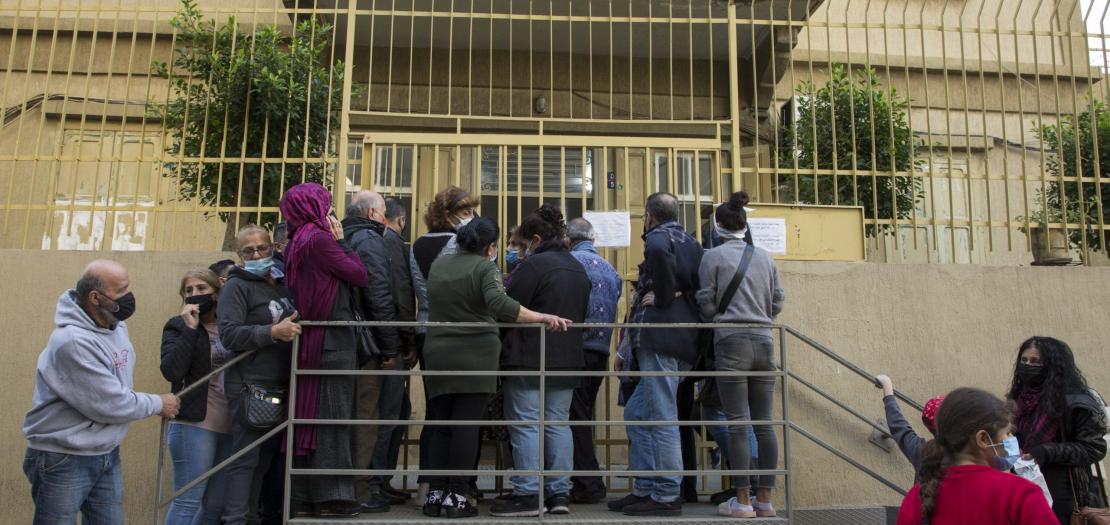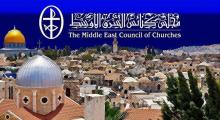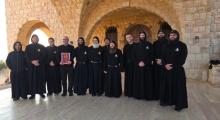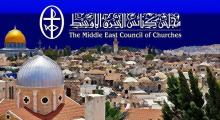Issued by the Catholic Center for Studies and Media - Jordan. Editor-in-chief Fr. Rif'at Bader - موقع أبونا abouna.org

Solidarity with the people of Lebanon in the midst of the country’s ongoing economic collapse has been among the priorities for the Catholic Near East Welfare Association's (CNEWA) regional office in Beirut, where staff has been assessing the local needs and securing food supplies, as an increasing number of people slide into poverty.
CNEWA has distributed $460,000 to its Beirut office to provide food packages to 7,050 families in need. Twelve CNEWA partners in Lebanon will help to implement the food distribution program in Beirut and surrounding areas from April to July.
“The situation is very heavy — morally, psychologically, financially and socially,” said Michel Constantin, CNEWA’s regional director.
“We feel that now, more than ever, our mission is clear,” he continued. “In these difficult times, CNEWA’s presence and role are crucial for the church and for the people of Lebanon. We need to act quickly, to respond to all the rising catastrophes and sufferings.”
Anti-government protests have erupted in cities and towns across Lebanon in recent weeks, as political authorities seem deadlocked in their efforts to form a government and Lebanon’s currency continues its spiral to an all-time low.
Catholic Church leaders, including Maronite Patriarch Bechara Boutros Rai and the Melkite Greek Catholic bishops, led by Patriarch Youssef Absi, have called on political authorities to exercise their responsibilities and to act swiftly in forming a government.
“Why don’t you form a government when the people are crying out from pain, starving from poverty and dying from disease?” Cardinal Rai asked in a homily on 24 January. “Why don’t you form a government when the country has entered into the final chapter of collapse? Don’t you fear God, the people and the court of conscience and history?”
Both patriarchs have also called for the Lebanese government to reaffirm Lebanon’s position of neutrality in its foreign policy, specifically in the geopolitical conflicts of the Middle East.
The patriarchs underlined the urgency of the situation, as the Lebanese people face growing poverty under the collapse of the Lebanese pound. Lebanon’s currency has lost about 85 percent of its value on the international market, leaving the country, which relies heavily on imports, in a precarious and vulnerable situation.
Protests in Lebanon have drawn people of all ages to the streets. Above, a protester in Beirut holds a Lebanese flag while tires burn and other protesters gather behind him.
The unemployment rate has nearly quadrupled since 2019, to 40 percent, and 50 percent of the population is living below the poverty level, Mr. Constantin reported. In response, young, talented professionals are emigrating.
“Lebanon is currently losing its youth and its educated and well-qualified human resources,” said Mr. Constantin. “Doctors, medical staff, teachers, economists and other professionals are leaving the country in search for a better future abroad.
“The current financial and monetary crises are taking a heavy toll on all aspects of life — on hospitals, schools, universities, etc.,” including those operated by the Catholic Church and religious communities, he said.
“If this continues, Lebanon — which was once a country with a message of freedom and pluralism and, not long ago, a place for modernization, and a hub for medical and educational tourism — is endangered of collapsing, losing all its human resources and well-established heritage, and becoming a small, poor country with only an elderly population,” he added.
Daytime protests are common in Beirut, as political leaders fail to form a Cabinet and the Lebanese economy continues it is downward spiral. In the background, protesters gather around a military vehicle.
The timing of aid and action in this increasingly grave situation is crucial, said Mr. Constantin.
“Now is the time to help the Church to come up with real, concrete strategies to preserve its long heritage,” he said, “including schools, hospitals, social institutions and, above all, its people.”







